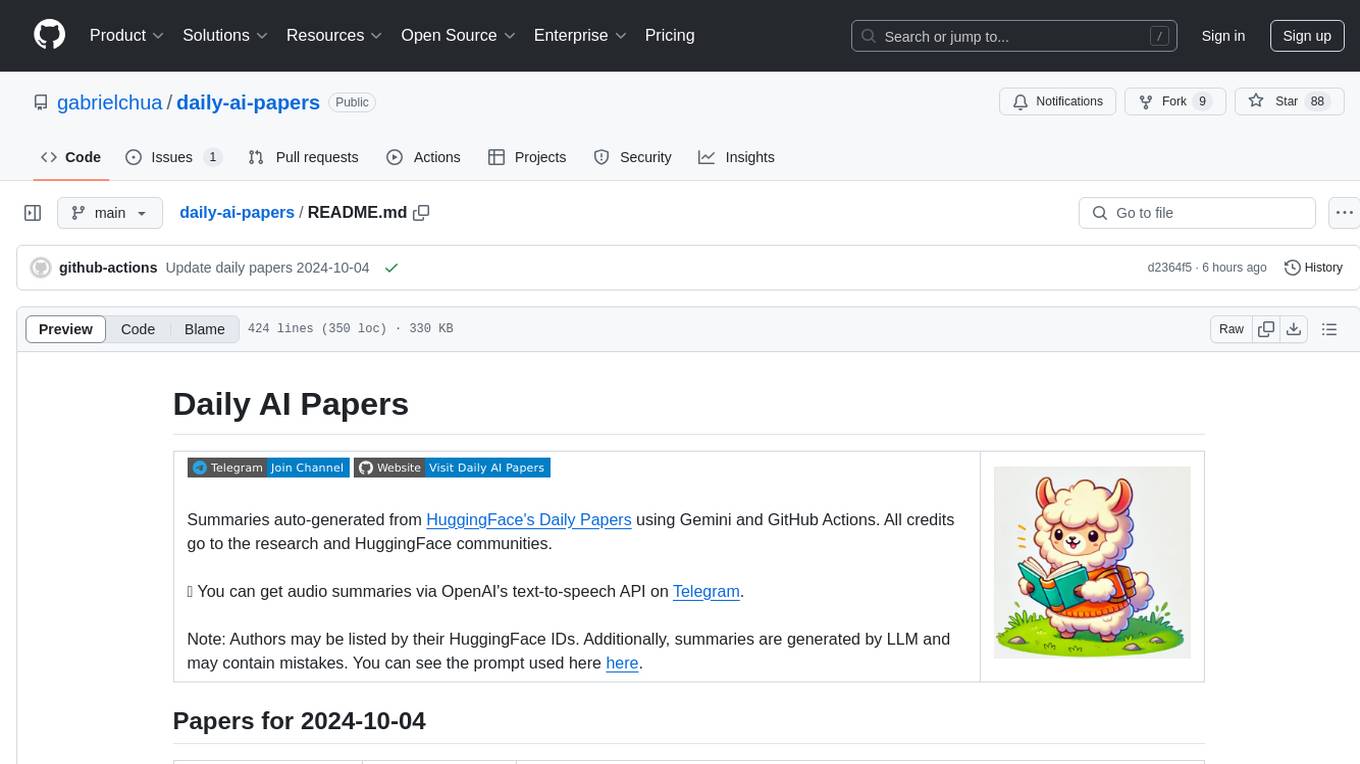
CoDrivingLLM
[IEEE-TVT(2025)]Towards Interactive and Learnable Cooperative Driving Automation: a Large Language Model-Driven Decision-making Framework
Stars: 54
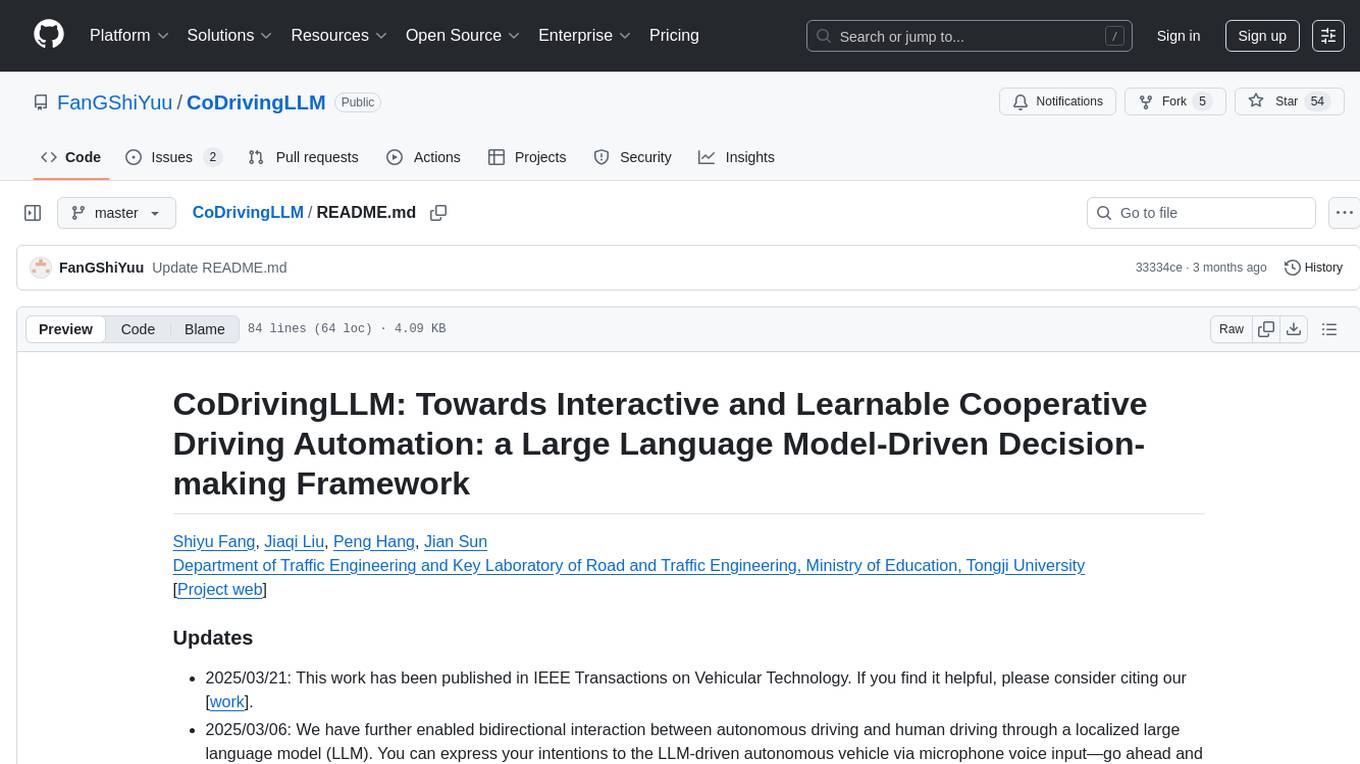
CoDrivingLLM is a machine learning model for predicting driving behavior based on sensor data collected from vehicles. It utilizes a Long Short-Term Memory (LSTM) neural network to analyze patterns in the data and make predictions about future driving actions. The model is trained on a large dataset of driving scenarios and can be used to improve driver assistance systems, enhance road safety, and optimize vehicle performance. CoDrivingLLM is designed to be easily integrated into existing automotive systems and can provide real-time feedback to drivers to help them make safer and more efficient driving decisions.
README:
CoDrivingLLM: Towards Interactive and Learnable Cooperative Driving Automation: a Large Language Model-Driven Decision-making Framework
Shiyu Fang, Jiaqi Liu, Peng Hang, Jian Sun
Department of Traffic Engineering and Key Laboratory of Road and Traffic Engineering, Ministry of Education, Tongji University
[Project web]
- 2025/03/21: This work has been published in IEEE Transactions on Vehicular Technology. If you find it helpful, please consider citing our [work].
- 2025/03/06: We have further enabled bidirectional interaction between autonomous driving and human driving through a localized large language model (LLM). You can express your intentions to the LLM-driven autonomous vehicle via microphone voice input—go ahead and see how it responds! [Code]
Install the dependent package
pip install -r requirements.txtRun CoDrivingLLM
python Run_multi_CAV_LLM.pyremember to add your API key first
In this repository, you can expect to find the following features:
Included:
- Code for CoDrivingLLM (including highway, merge, intersection)
- Video and Raw Data of our experiment
Not included:
- Code for Comparison Algorithm (including iDFST, Cooperative Game, MADQN)
Main script for debuging and running LLM-based agent at different scenarios
Main modules for LLM agent and other tools
-
llm_agent_action.py : main script for building the LLM agent, which needs to take the prompt and scenario information as input, request the remote servers from OpenAI, get the feedback, parse the feedback, and then output the final decision-making for each CAV.
-
llm_agent_negotiation_system.py : script for generating the advisory passing sequence of vehicles in each conflict pair based on the severity of the conflict for each CAV final decision, features a centralized-distributed coupled architecture.
-
memory.py : stores all the functions required by the memory module, including the acquisition of similar memories and the storage of new memories.
-
prompt_llm.py: all prompts used to connect the traffic scenario, CAV and ChatGPT. Different scenarios may need different prompt, which needs to be revised and updated according to the scenario's meets.
-
scenario_description.py : the main function file for translating the traffic scenarios into natural languages that LLM can understand.
Open source highway-env simulator with different traffic scenarios, including single-lane unsignalized intersection, on-ramp scenario, and highway scenario,which are corresponded to intersection_env.py, merge_env_v1.py, and highway_env.py, respectively.
Video of vehicle operation and raw data of different cooperative driving method in each experiment.
If you have any questions, feel free to contact us ([email protected]) 📧.
Our paper has been pre-printed! If you find our work helpful, please consider citing us using the following reference 😊:
@ARTICLE{10933798,
author={Fang, Shiyu and Liu, Jiaqi and Ding, Mingyu and Cui, Yiming and Lv, Chen and Hang, Peng and Sun, Jian},
journal={IEEE Transactions on Vehicular Technology},
title={Towards Interactive and Learnable Cooperative Driving Automation: a Large Language Model-Driven Decision-Making Framework},
year={2025},
volume={},
number={},
pages={1-12},
keywords={Cognition;Autonomous vehicles;Decision making;Aerospace electronics;Safety;Memory modules;Sun;Space vehicles;Semantics;Roads;connected autonomous vehicles;cooperative driving automation;large language model;conflict negotiation;retrieval augment generation},
doi={10.1109/TVT.2025.3552922}}
For Tasks:
Click tags to check more tools for each tasksFor Jobs:
Alternative AI tools for CoDrivingLLM
Similar Open Source Tools

CoDrivingLLM
CoDrivingLLM is a machine learning model for predicting driving behavior based on sensor data collected from vehicles. It utilizes a Long Short-Term Memory (LSTM) neural network to analyze patterns in the data and make predictions about future driving actions. The model is trained on a large dataset of driving scenarios and can be used to improve driver assistance systems, enhance road safety, and optimize vehicle performance. CoDrivingLLM is designed to be easily integrated into existing automotive systems and can provide real-time feedback to drivers to help them make safer and more efficient driving decisions.

lemonai
LemonAI is a versatile machine learning library designed to simplify the process of building and deploying AI models. It provides a wide range of tools and algorithms for data preprocessing, model training, and evaluation. With LemonAI, users can easily experiment with different machine learning techniques and optimize their models for various tasks. The library is well-documented and beginner-friendly, making it suitable for both novice and experienced data scientists. LemonAI aims to streamline the development of AI applications and empower users to create innovative solutions using state-of-the-art machine learning methods.
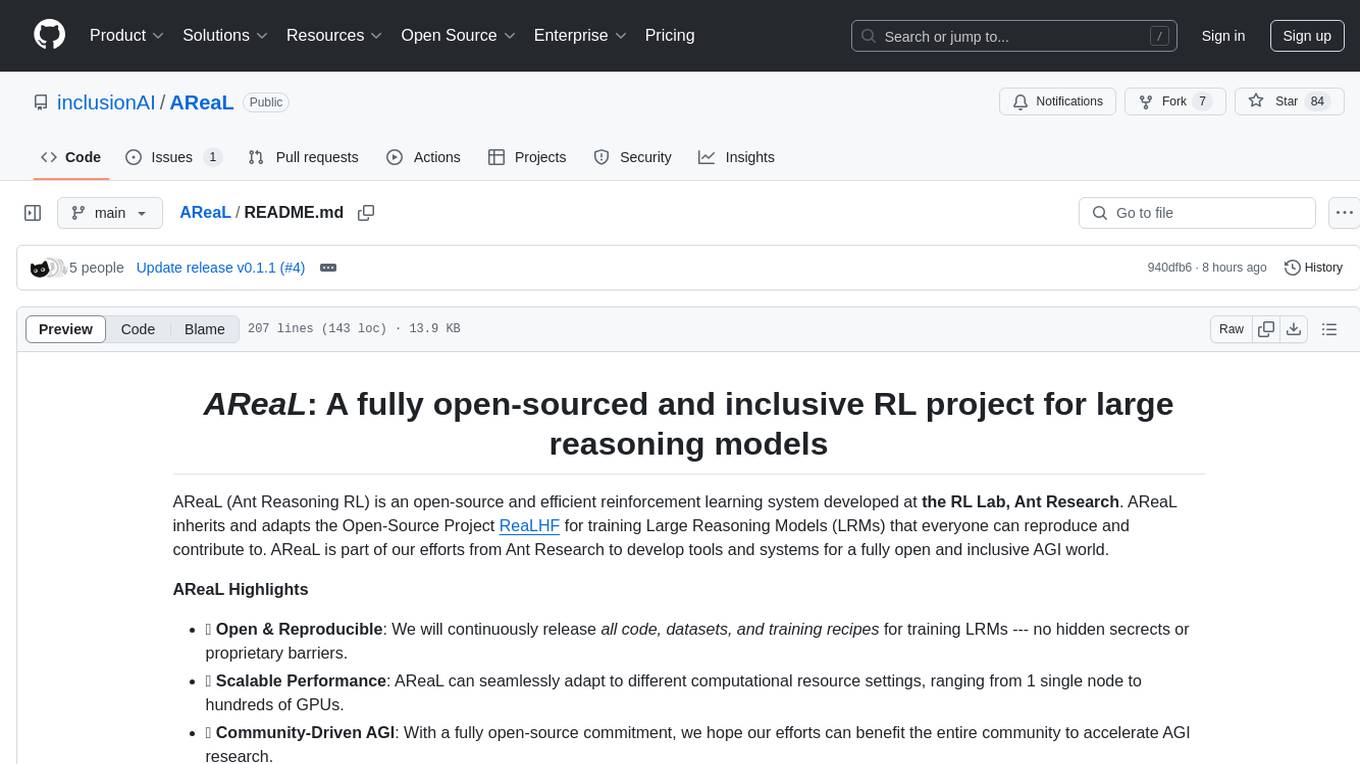
AReaL
AReaL (Ant Reasoning RL) is an open-source reinforcement learning system developed at the RL Lab, Ant Research. It is designed for training Large Reasoning Models (LRMs) in a fully open and inclusive manner. AReaL provides reproducible experiments for 1.5B and 7B LRMs, showcasing its scalability and performance across diverse computational budgets. The system follows an iterative training process to enhance model performance, with a focus on mathematical reasoning tasks. AReaL is equipped to adapt to different computational resource settings, enabling users to easily configure and launch training trials. Future plans include support for advanced models, optimizations for distributed training, and exploring research topics to enhance LRMs' reasoning capabilities.
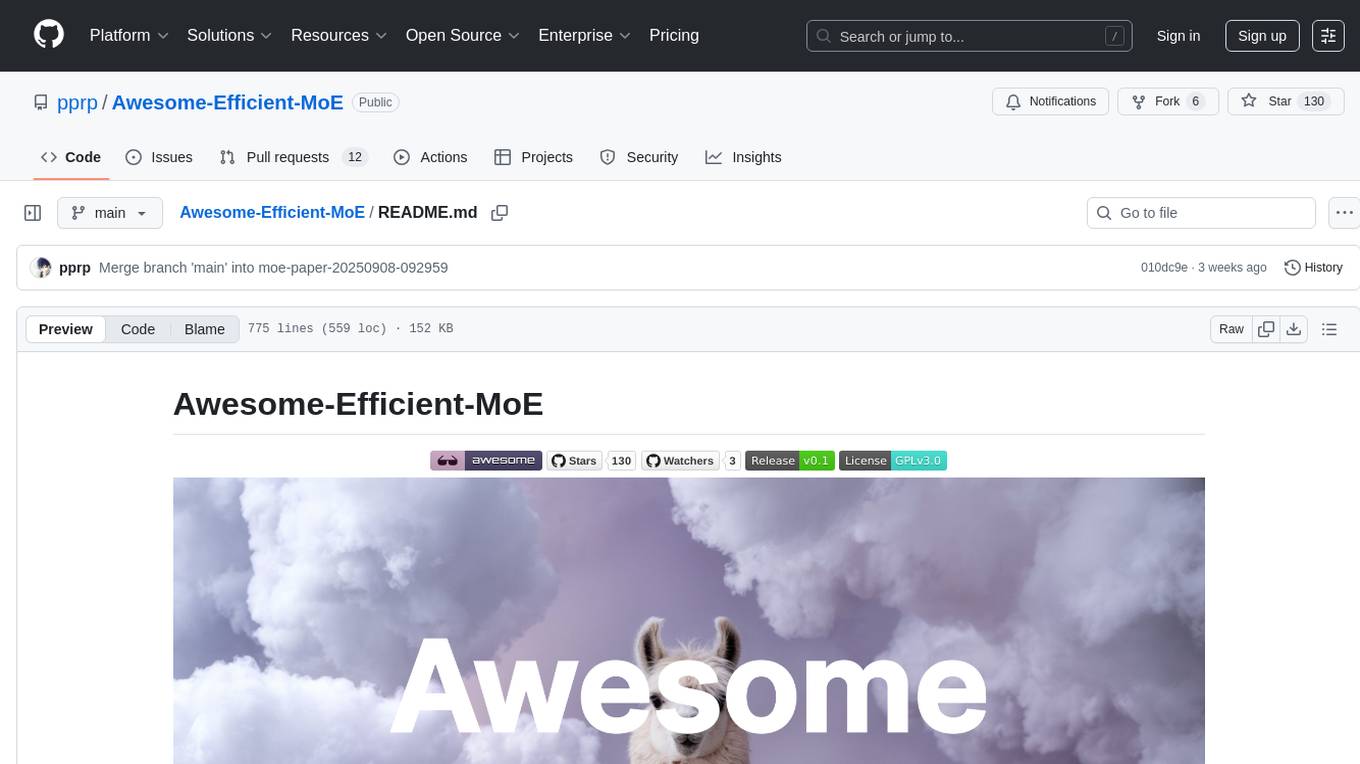
Awesome-Efficient-MoE
Awesome Efficient MoE is a GitHub repository that provides an implementation of Mixture of Experts (MoE) models for efficient deep learning. The repository includes code for training and using MoE models, which are neural network architectures that combine multiple expert networks to improve performance on complex tasks. MoE models are particularly useful for handling diverse data distributions and capturing complex patterns in data. The implementation in this repository is designed to be efficient and scalable, making it suitable for training large-scale MoE models on modern hardware. The code is well-documented and easy to use, making it accessible for researchers and practitioners interested in leveraging MoE models for their deep learning projects.

deeppowers
Deeppowers is a powerful Python library for deep learning applications. It provides a wide range of tools and utilities to simplify the process of building and training deep neural networks. With Deeppowers, users can easily create complex neural network architectures, perform efficient training and optimization, and deploy models for various tasks. The library is designed to be user-friendly and flexible, making it suitable for both beginners and experienced deep learning practitioners.
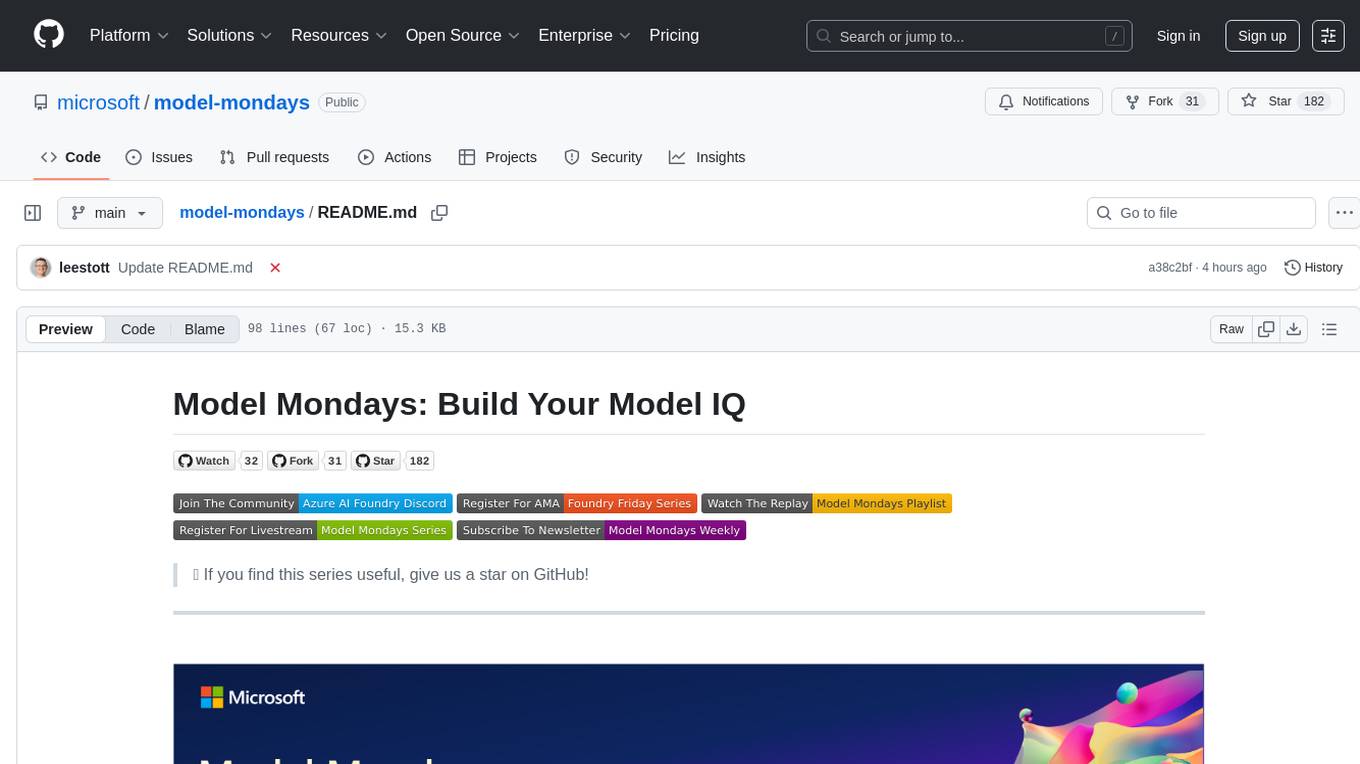
model-mondays
Model Mondays is a repository dedicated to providing a collection of machine learning models implemented in Python. It aims to serve as a resource for individuals looking to explore and experiment with various machine learning algorithms and techniques. The repository includes a wide range of models, from simple linear regression to complex deep learning architectures, along with detailed documentation and examples to facilitate learning and understanding. Whether you are a beginner looking to get started with machine learning or an experienced practitioner seeking reference implementations, Model Mondays offers a valuable repository of models to study and leverage in your projects.
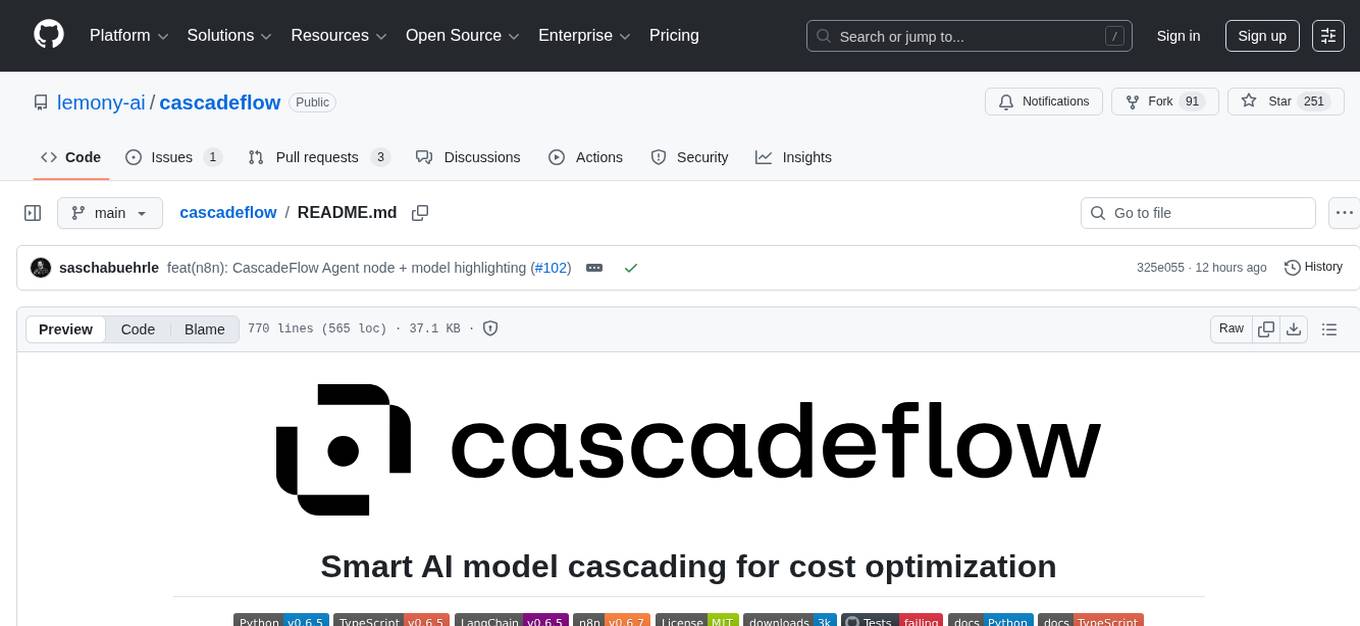
cascadeflow
cascadeflow is an intelligent AI model cascading library that dynamically selects the optimal model for each query or tool call through speculative execution. It helps reduce API costs by 40-85% through intelligent model cascading and speculative execution with automatic per-query cost tracking. The tool is based on the research that shows 40-70% of queries don't require slow, expensive flagship models, and domain-specific smaller models often outperform large general-purpose models on specialized tasks. cascadeflow automatically escalates to flagship models for advanced reasoning when needed. It supports multiple providers, low latency, cost control, and transparency, and can be used for edge and local-hosted AI deployment.
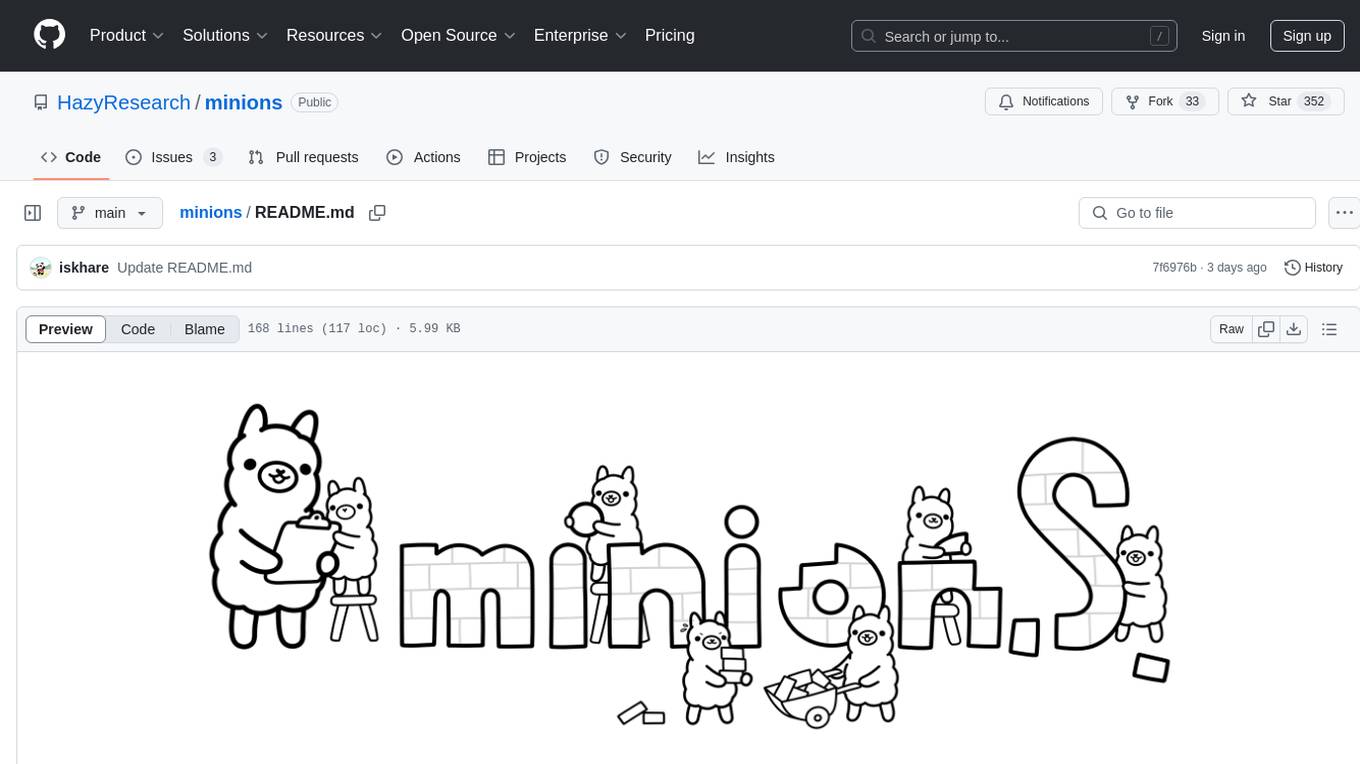
minions
Minions is a communication protocol that enables small on-device models to collaborate with frontier models in the cloud. By only reading long contexts locally, it reduces cloud costs with minimal or no quality degradation. The repository provides a demonstration of the protocol.
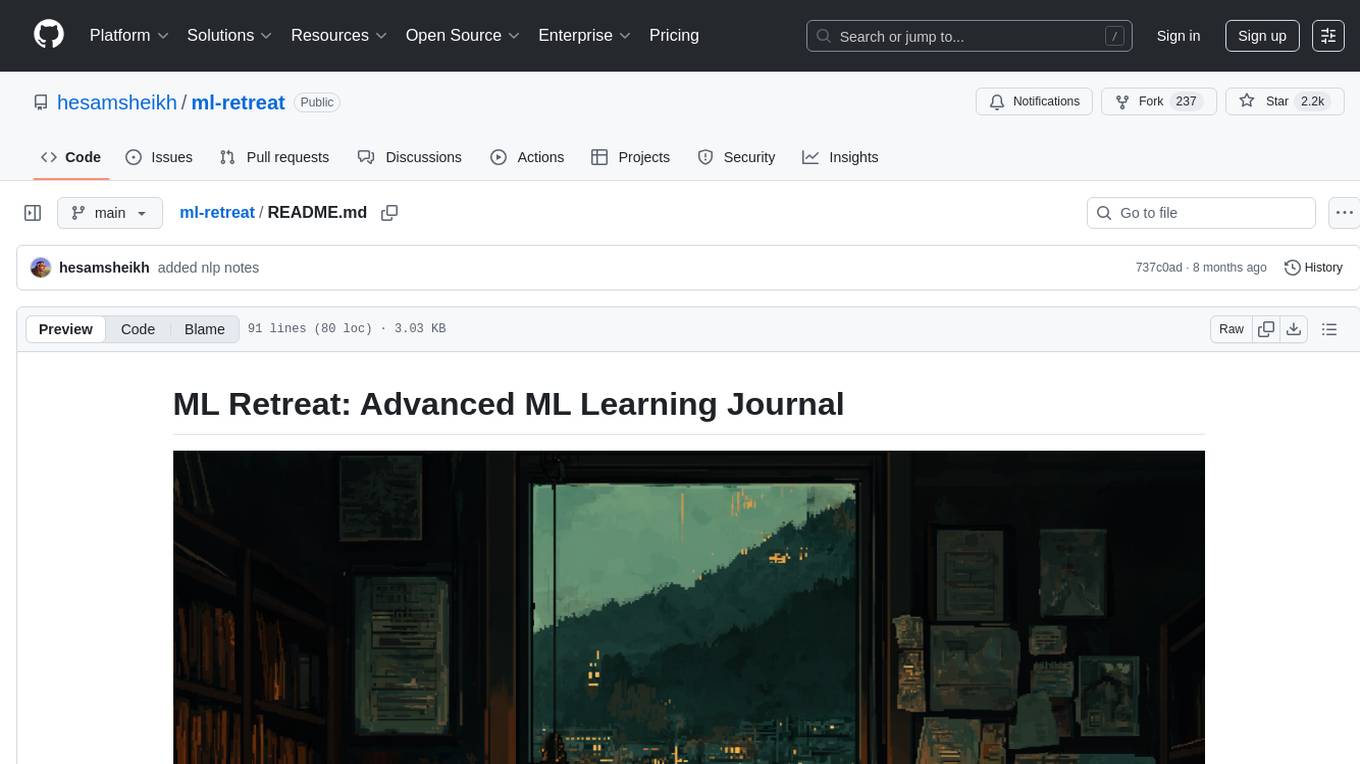
ml-retreat
ML-Retreat is a comprehensive machine learning library designed to simplify and streamline the process of building and deploying machine learning models. It provides a wide range of tools and utilities for data preprocessing, model training, evaluation, and deployment. With ML-Retreat, users can easily experiment with different algorithms, hyperparameters, and feature engineering techniques to optimize their models. The library is built with a focus on scalability, performance, and ease of use, making it suitable for both beginners and experienced machine learning practitioners.
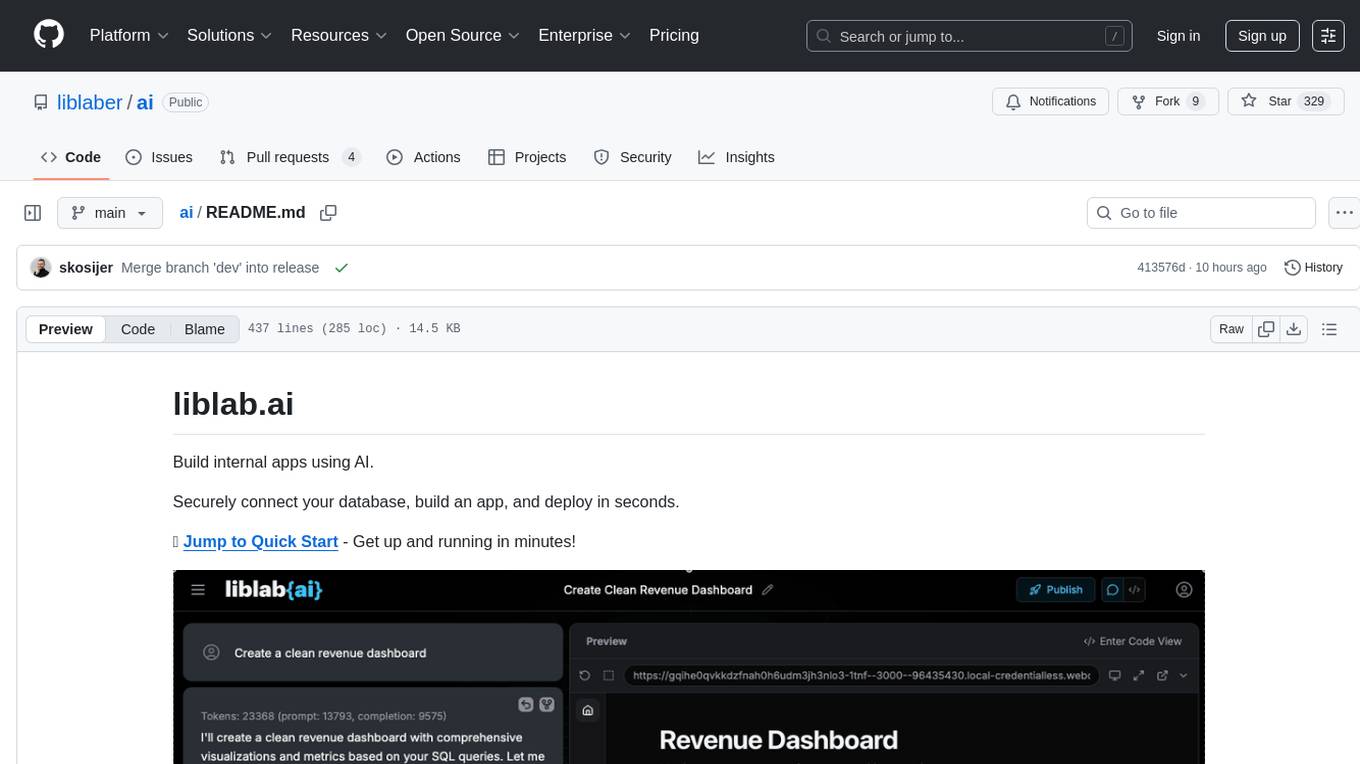
ai
This repository contains a collection of AI algorithms and models for various machine learning tasks. It provides implementations of popular algorithms such as neural networks, decision trees, and support vector machines. The code is well-documented and easy to understand, making it suitable for both beginners and experienced developers. The repository also includes example datasets and tutorials to help users get started with building and training AI models. Whether you are a student learning about AI or a professional working on machine learning projects, this repository can be a valuable resource for your development journey.
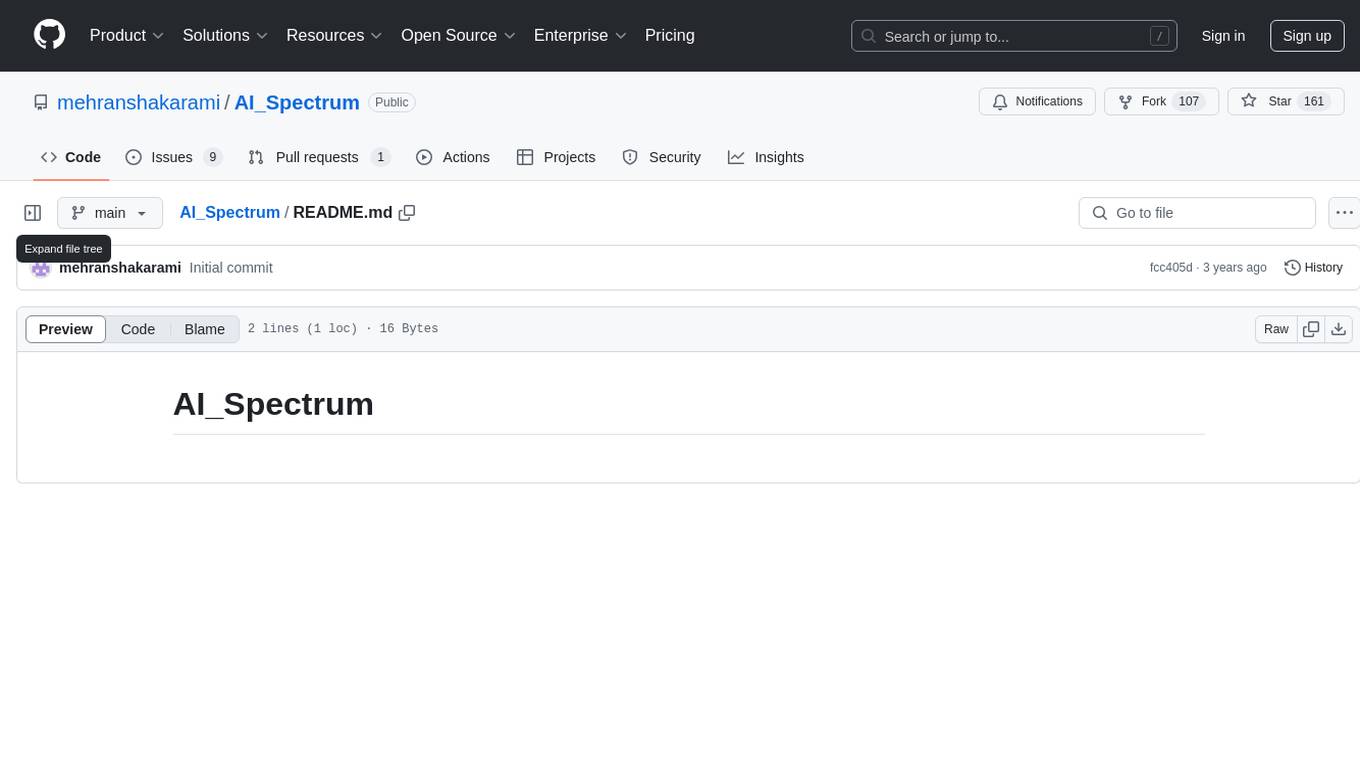
AI_Spectrum
AI_Spectrum is a versatile machine learning library that provides a wide range of tools and algorithms for building and deploying AI models. It offers a user-friendly interface for data preprocessing, model training, and evaluation. With AI_Spectrum, users can easily experiment with different machine learning techniques and optimize their models for various tasks. The library is designed to be flexible and scalable, making it suitable for both beginners and experienced data scientists.
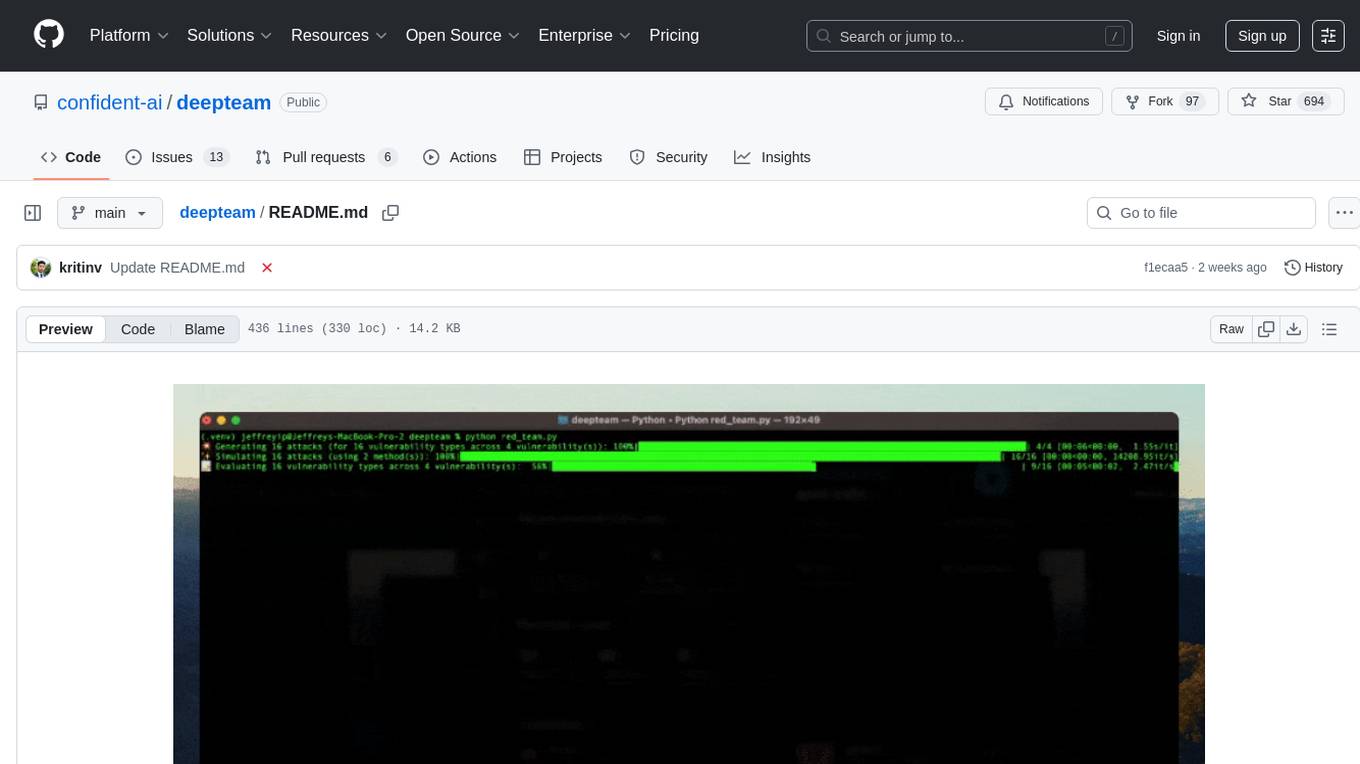
deepteam
Deepteam is a powerful open-source tool designed for deep learning projects. It provides a user-friendly interface for training, testing, and deploying deep neural networks. With Deepteam, users can easily create and manage complex models, visualize training progress, and optimize hyperparameters. The tool supports various deep learning frameworks and allows seamless integration with popular libraries like TensorFlow and PyTorch. Whether you are a beginner or an experienced deep learning practitioner, Deepteam simplifies the development process and accelerates model deployment.
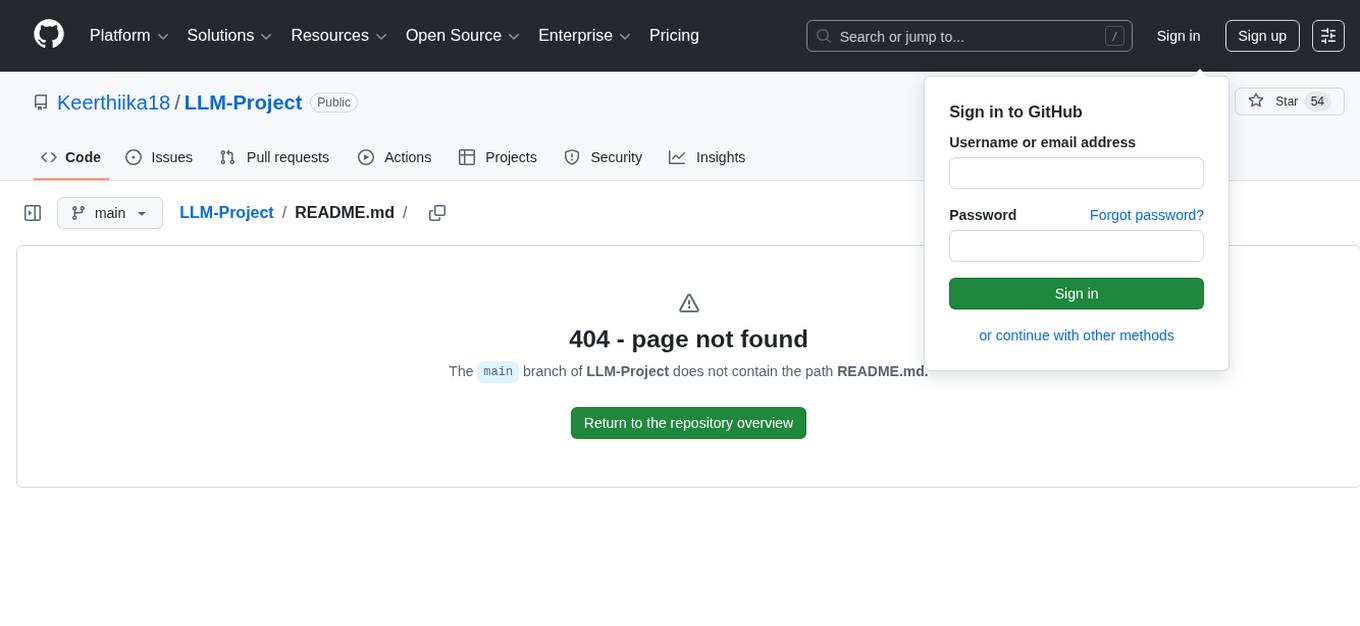
LLM-Project
LLM-Project is a machine learning model for sentiment analysis. It is designed to analyze text data and classify it into positive, negative, or neutral sentiments. The model uses natural language processing techniques to extract features from the text and train a classifier to make predictions. LLM-Project is suitable for researchers, developers, and data scientists who are working on sentiment analysis tasks. It provides a pre-trained model that can be easily integrated into existing projects or used for experimentation and research purposes. The codebase is well-documented and easy to understand, making it accessible to users with varying levels of expertise in machine learning and natural language processing.
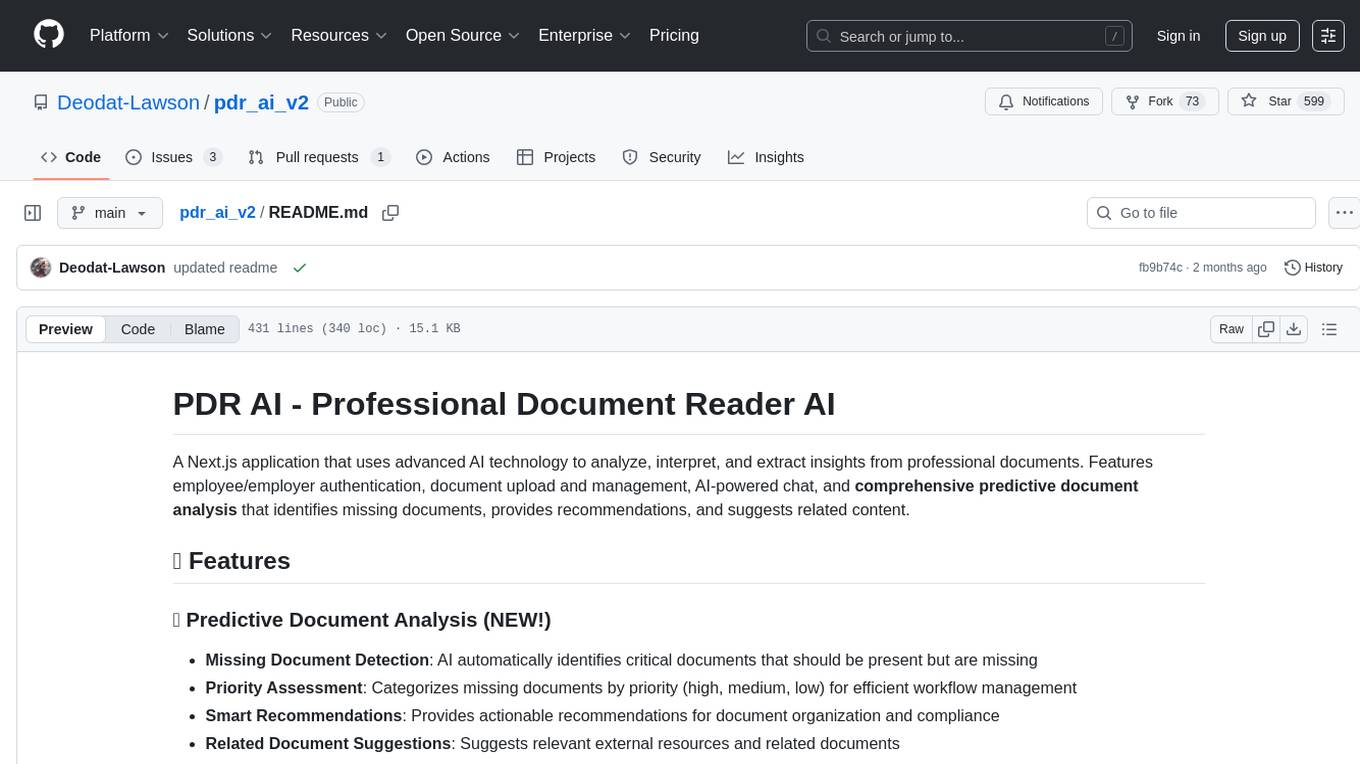
pdr_ai_v2
pdr_ai_v2 is a Python library for implementing machine learning algorithms and models. It provides a wide range of tools and functionalities for data preprocessing, model training, evaluation, and deployment. The library is designed to be user-friendly and efficient, making it suitable for both beginners and experienced data scientists. With pdr_ai_v2, users can easily build and deploy machine learning models for various applications, such as classification, regression, clustering, and more.
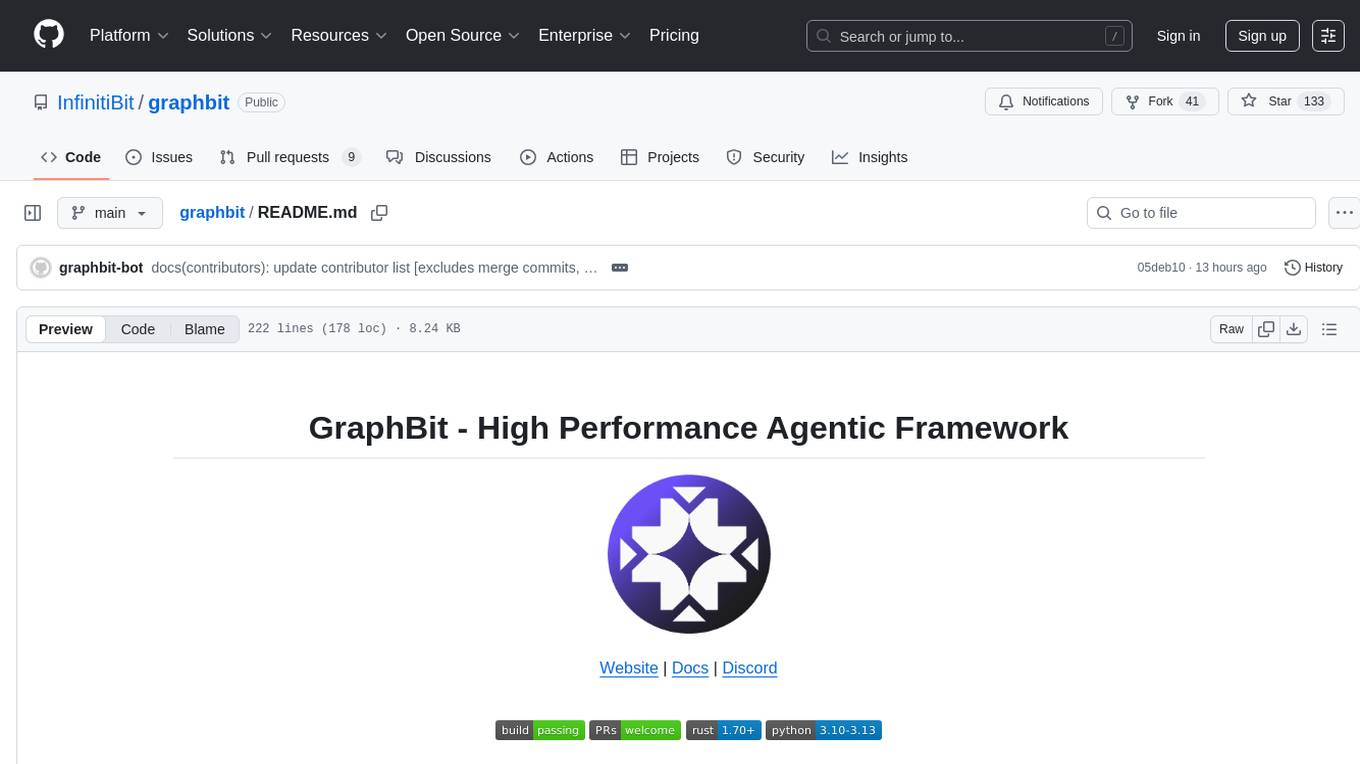
graphbit
GraphBit is an industry-grade agentic AI framework built for developers and AI teams that demand stability, scalability, and low resource usage. It is written in Rust for maximum performance and safety, delivering significantly lower CPU usage and memory footprint compared to leading alternatives. The framework is designed to run multi-agent workflows in parallel, persist memory across steps, recover from failures, and ensure 100% task success under load. With lightweight architecture, observability, and concurrency support, GraphBit is suitable for deployment in high-scale enterprise environments and low-resource edge scenarios.
For similar tasks

CoDrivingLLM
CoDrivingLLM is a machine learning model for predicting driving behavior based on sensor data collected from vehicles. It utilizes a Long Short-Term Memory (LSTM) neural network to analyze patterns in the data and make predictions about future driving actions. The model is trained on a large dataset of driving scenarios and can be used to improve driver assistance systems, enhance road safety, and optimize vehicle performance. CoDrivingLLM is designed to be easily integrated into existing automotive systems and can provide real-time feedback to drivers to help them make safer and more efficient driving decisions.
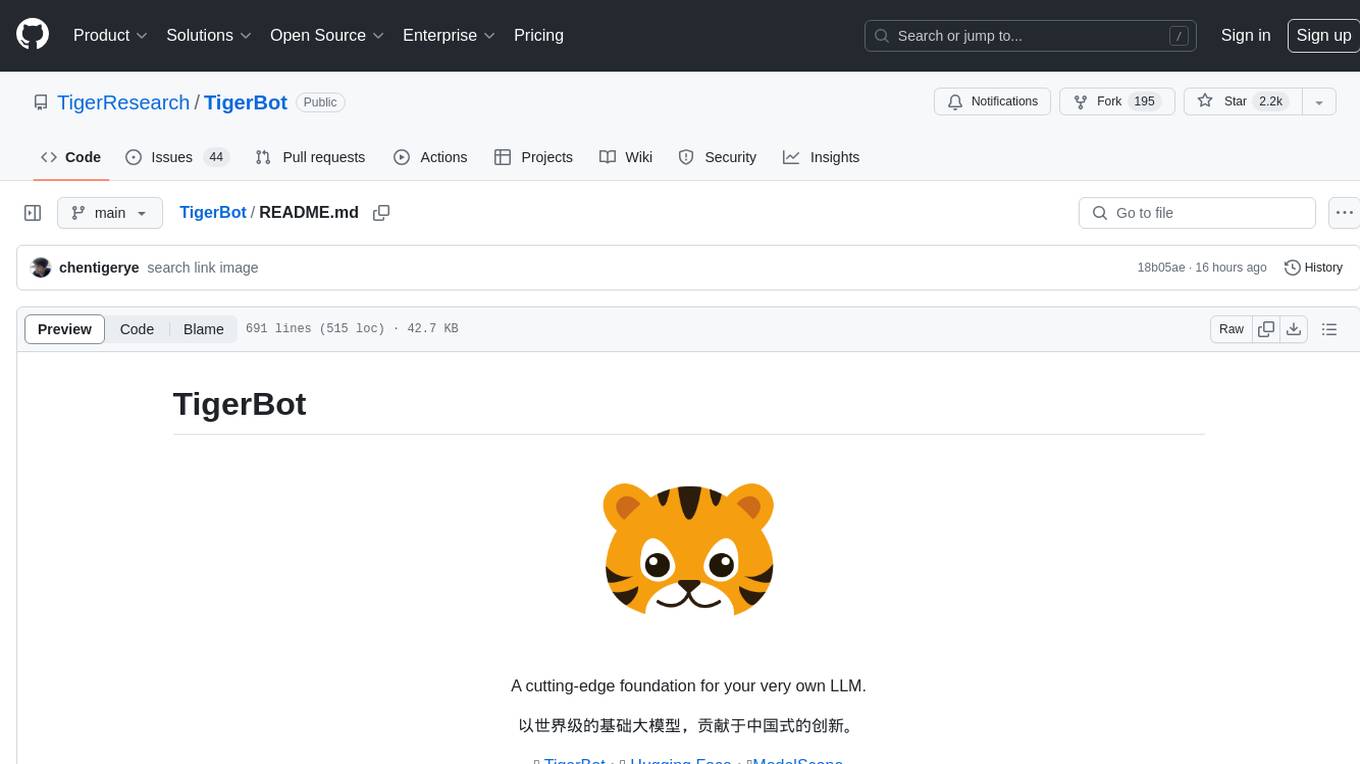
TigerBot
TigerBot is a cutting-edge foundation for your very own LLM, providing a world-class large model for innovative Chinese-style contributions. It offers various upgrades and features, such as search mode enhancements, support for large context lengths, and the ability to play text-based games. TigerBot is suitable for prompt-based game engine development, interactive game design, and real-time feedback for playable games.
For similar jobs

sweep
Sweep is an AI junior developer that turns bugs and feature requests into code changes. It automatically handles developer experience improvements like adding type hints and improving test coverage.

teams-ai
The Teams AI Library is a software development kit (SDK) that helps developers create bots that can interact with Teams and Microsoft 365 applications. It is built on top of the Bot Framework SDK and simplifies the process of developing bots that interact with Teams' artificial intelligence capabilities. The SDK is available for JavaScript/TypeScript, .NET, and Python.

ai-guide
This guide is dedicated to Large Language Models (LLMs) that you can run on your home computer. It assumes your PC is a lower-end, non-gaming setup.

classifai
Supercharge WordPress Content Workflows and Engagement with Artificial Intelligence. Tap into leading cloud-based services like OpenAI, Microsoft Azure AI, Google Gemini and IBM Watson to augment your WordPress-powered websites. Publish content faster while improving SEO performance and increasing audience engagement. ClassifAI integrates Artificial Intelligence and Machine Learning technologies to lighten your workload and eliminate tedious tasks, giving you more time to create original content that matters.

chatbot-ui
Chatbot UI is an open-source AI chat app that allows users to create and deploy their own AI chatbots. It is easy to use and can be customized to fit any need. Chatbot UI is perfect for businesses, developers, and anyone who wants to create a chatbot.

BricksLLM
BricksLLM is a cloud native AI gateway written in Go. Currently, it provides native support for OpenAI, Anthropic, Azure OpenAI and vLLM. BricksLLM aims to provide enterprise level infrastructure that can power any LLM production use cases. Here are some use cases for BricksLLM: * Set LLM usage limits for users on different pricing tiers * Track LLM usage on a per user and per organization basis * Block or redact requests containing PIIs * Improve LLM reliability with failovers, retries and caching * Distribute API keys with rate limits and cost limits for internal development/production use cases * Distribute API keys with rate limits and cost limits for students

uAgents
uAgents is a Python library developed by Fetch.ai that allows for the creation of autonomous AI agents. These agents can perform various tasks on a schedule or take action on various events. uAgents are easy to create and manage, and they are connected to a fast-growing network of other uAgents. They are also secure, with cryptographically secured messages and wallets.

griptape
Griptape is a modular Python framework for building AI-powered applications that securely connect to your enterprise data and APIs. It offers developers the ability to maintain control and flexibility at every step. Griptape's core components include Structures (Agents, Pipelines, and Workflows), Tasks, Tools, Memory (Conversation Memory, Task Memory, and Meta Memory), Drivers (Prompt and Embedding Drivers, Vector Store Drivers, Image Generation Drivers, Image Query Drivers, SQL Drivers, Web Scraper Drivers, and Conversation Memory Drivers), Engines (Query Engines, Extraction Engines, Summary Engines, Image Generation Engines, and Image Query Engines), and additional components (Rulesets, Loaders, Artifacts, Chunkers, and Tokenizers). Griptape enables developers to create AI-powered applications with ease and efficiency.
